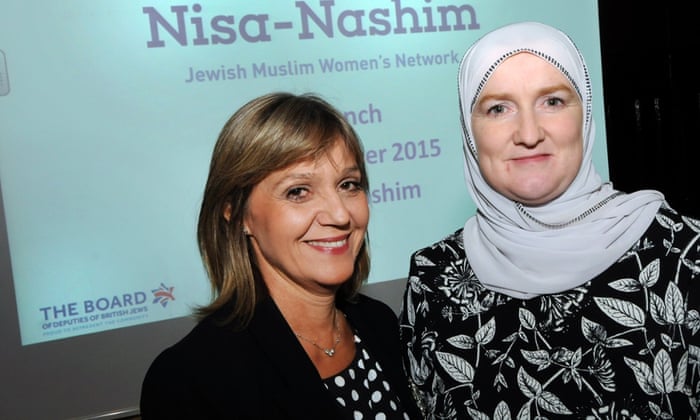At Nisa-Nashim’s first meeting, co-chair says current violence in Jerusalem makes breaking down barriers even more important
A Jewish-Muslim women’s network aimed at breaking down religious and cultural barriers has been launched with government backing.
About 150 people attended the launch of Nisa–Nashim – meaning women in Arabic and Hebrew – at the Islamia Girls’ school in north London on Wednesday, against the backdrop of worsening violence in Jerusalem. Melanie Dawes, the senior civil servant at the department for communities and local government, told the meeting she was “proud of the diversity in this country’s communities”. The government has supported the network with a £30,000 grant.
Julie Siddiqi, the Muslim co-chair of the network, told the Guardian: “The timing makes this more important, not less – it encourages and motivates us more.”
Laura Marks, the Jewish co-chair, said: “Obviously there is some suspicion, especially this week when things are so awful in the Middle East. Some people will say, what’s the point, but we have to try.”
The network has three principal aims: to bring women from the two communities together, to promote women’s leadership and be “active in wider society”. Marks said: “We need to show that Jews and Muslims have more in common than that which drives us apart. Women are genuinely looking for ways to engage with one another, and reach out to do something. Nisa–Nashim gives us permission and confidence.”
Among initial activities, the network has organised educational visits to mosques and synagogues, hosted kosher-halal meals, launched a business network and is supporting programmes to help refugees.
Addressing the launch meeting, Siddiqi said current tensions and violence in Israel and the Palestinian territories meant it was “even more important for people like us to be doing what we’re doing”. Referring to “my Jewish sisters”, she added: “The more friendships develop, the more we grow and learn together, the more I understand that those trying to divide us will not succeed.”

No comments:
Post a Comment